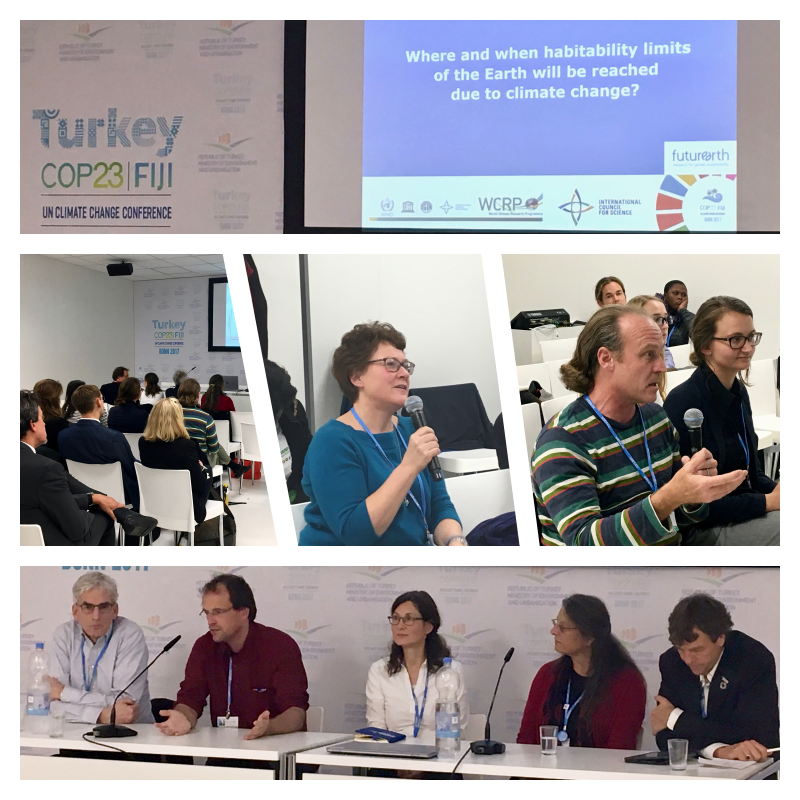The International Council for Science (ICSU) and World Climate Research Programme (WCRP) co-organized a side event during COP23, 6-17 November in Bonn, Germany, to explore how climate change is shaping changes in the natural and human environment- potentially beyond the limits in which species, including humans, can adapt.

The event, “Where and when habitability limits of the Earth will be reached due to climate change?“, was held at the Turkey Pavilion on Friday 10 November from 18:15 to 20:15 CET. WCRP Joint Scientific Committee and ICSU Committee on Scientific Planning and Review (CSPR) member Martin Visbeck moderated the discussion.
Speakers presented scientific progress in exploring and understanding the impact of climate change to the human and natural environment, and gave some examples where climate change impacts push some of our planet’s regions to the limits of habitability. Participants enjoyed the discussion on the socio-economic implications of climate extremes and associated risks to human health, terrestrial ecosystem, transport infrastructures and ocean acidification.
The take home message is that science brings critical value to climate negotiations on mitigation targets and adaptation measures. Global and local/regional science provides key information on the limit laid upon the adaptation measures in a wide range of habitability dimensions (human health, ecosystem, infrastructure, etc.).
There is further work for science to do, in order to provide more specific information to evaluate the impacts of different scenarios thereby providing foundational knowledge for well informed climate-related decisions in the larger context of sustainable development. It was emphasised to ensure continuous and systematic observations on the status of the climate, and free and open data and information sharing from these observing networks. Moreover the need for increased capacity development was recognized in particular in the developing world.
Most of all, participants emphasised that science should be widely communicated not only to decision makers but also to general public, and the current gap in information flow has to be filled. An innovative approach for network-to-network collaboration and technical development is highly sought, in response to which the climate science community such as WCRP and Future Earth are working on closer cross-community engagements and under the global scientific umbrella of ICSU.
[related_items ids=”4569,632″]